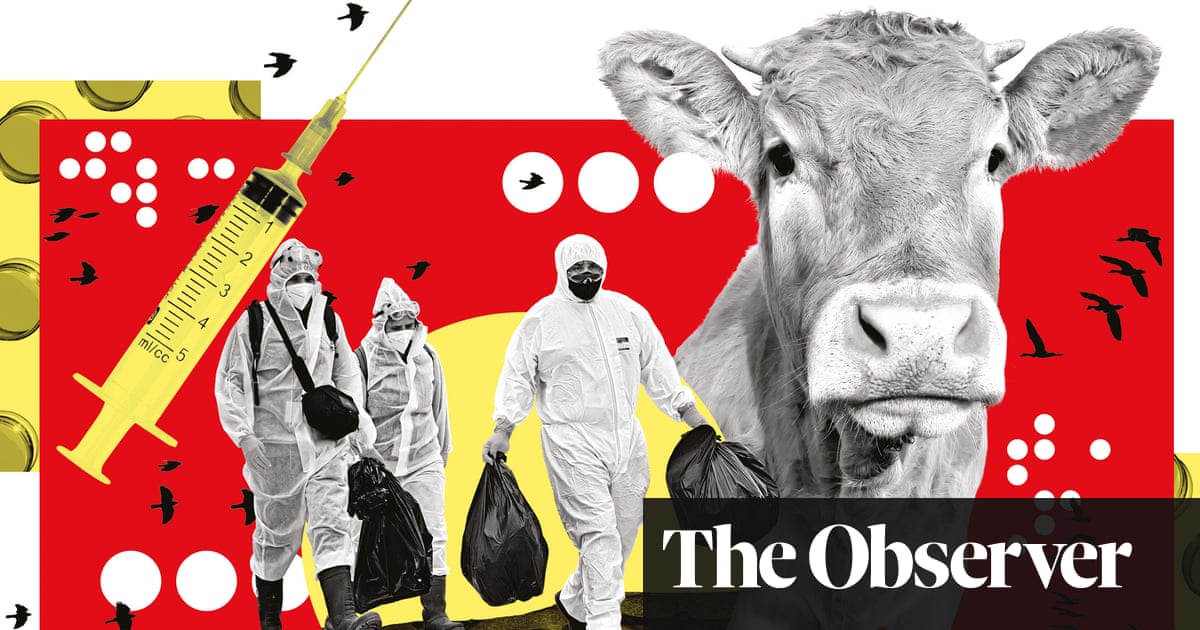
It might seem that Russia’s government has lost the support of its young for good. Western media cover stories of young Russians fleeing conscription and attacking military recruiters. And the handful of reliable surveys of Russian public opinion suggest that, while approval for the “special military operation” and Putin remains high overall, young Russians are less likely than their elders to voice their support.
But the regime is also turbocharging indoctrination efforts aimed at its youngest subjects. This includes well-worn tactics such as closing off social media and online dissent, and rolling out propaganda lessons in schools. But its most effective tool may be a myriad of new youth groups that introduce children to the Russian state’s world of constant war with a dazzling barrage of social media infotainment.
The biggest such organisation is the Youth Army, established in 2016 under the defence minister, Sergei Shoigu, with the explicit intention of preparing children for careers in the state or military apparatus. It is fronted not by a greying politician, or career soldier, but by the popular 25-year-old Olympic and World Championship gymnast Nikita Nagornyy. Charismatic and handsome, as well as hugely popular on social media, Nagornyy uses influencer-style videos and posts to spread the state’s gospel.
One day he might appear in a workout video or meet Vladimir Putin, the next he poses with a military veteran. “Let’s talk about something important,” he commented alongside a selfie in uniform on the eve of this year’s Victory Day celebration in May, before launching into a sermon on the importance of remembering Russia’s military martyrs.
Equal parts Instagram influencer, teen heart-throb, and chief scout, Nagornyy is the embodiment of the state’s vision for its youth. He is the perfect role model for a 21st-century paramilitary movement. PR photos show him visiting “veterans” of the war in Ukraine, which Nagornyy has repeatedly praised. In turn, his young followers swamp anyone who steps out of line in comment threads: “Go to Ukraine! We don’t need fascists here! Bon voyage!” All over Russia, groups of “young soldiers” clad in distinctive red berets and khaki uniforms practise military manoeuvres and firing guns, attend lessons on patriotic history and gather aid for the “ethnic Russians” the state purports to be rescuing in Ukraine.
A network of such influencers mirrors Nagornyy’s feeds. The 21-year-old champion skier Veronika Stepanova, for instance, posts about her life as an athlete today, as a teen Youth Army member in the past, and about politics and the war in Ukraine. When a Youth Army “veteran” such as Stepanova praises Putin while receiving a state award, she links her enviable lifestyle, the Youth Army and the regime.
The state has thrown massive political and financial support behind the Youth Army project, and it appears to be paying off. Last year a 185m federal subsidy was announced, and the group is growing rapidly. A million children are already members, and enrolment is projected to hit 20% of the school-age population by 2030.
Membership is painted as an enjoyable way to make friends and attain an influencer-like lifestyle. The Youth Army’s official website is packed with uniformed cartoon characters, warlike video game clips and soft-focus images of smiling “soldiers”. Using the group’s social media feeds and official app, children can play games and photograph themselves completing “patriotic” activities – such as visiting war memorials – to win prizes. Many of the young recruits imitate the methods of Nagornyy and the Youth Army by incorporating their Youth Army participation into their carefully curated social media lives – in particular on TikTok, which, despite an official ban, remains widely popular among Russian teens.
The state promises power, self-actualisation and, above all, social belonging. The apathetic and apolitical are left to gaze at this fantasy world from the outside. A series of Youth Army members and leaders I interviewed this summer were unequivocal: joining up wasn’t a totalitarian imposition; it was a proactive choice to belong to a patriotic community. One regional leader told me that his group could barely cope with the number of applications received since 24 February.
But the Youth Army isn’t an ordinary army cadet group, and patriotic social media chatter is not idle talk. Its members are being taught “to die for the motherland”. They learn serious military skills in classrooms and summer training camps. The Russian media whip up expectations about their military capabilities: “The only reason the Youth Army is on the EU’s sanctions list is the west’s fear of Russian children!”
As the state pivots its propaganda away from the measured inculcation of apathy and toward proactive indoctrination, children as young as six learn to speak the language of war: “I want to defend my country and my loved ones,” one new elementary-aged recruit confidently declared to a local TV journalist. And older children must live its reality. Some of the programme’s graduates are already at the front. Online tributes to the former “youth soldiers” who have “died a hero’s death” in Ukraine reify these young men’s deaths, linking their lives to the unattainable ideal of Nagornyy, to the curated Instagram feeds of “young soldiers,” and finally to the paths that Russia’s children are being taught to follow more widely: join up, train in the military arts, discover a sense of community and your perfect self, prepare to defend the motherland.
The Youth Army is one part of the state’s broader project to politicise the young. Money pours into slickly marketed groups, glitzy youth conferences attended by internet celebrities and teacher-training programmes that buttress national efforts. The government is even launching plans to create a movement along the lines of the Soviet “Pioneers” – a more palatable alternative for cosmopolitan city-dwellers than the militarised Youth Army. The politicians backing the group are already discussing enrolment that would reach into the millions and exceed that of the Youth Army.
Next time the state’s military recruiters come calling, young Russians may be more likely to sign up than to flee abroad.
Ian Garner is a historian of Russian war culture. He is the author of the forthcoming book Z Generation: Into the Heart of Russia’s Fascist Youth












